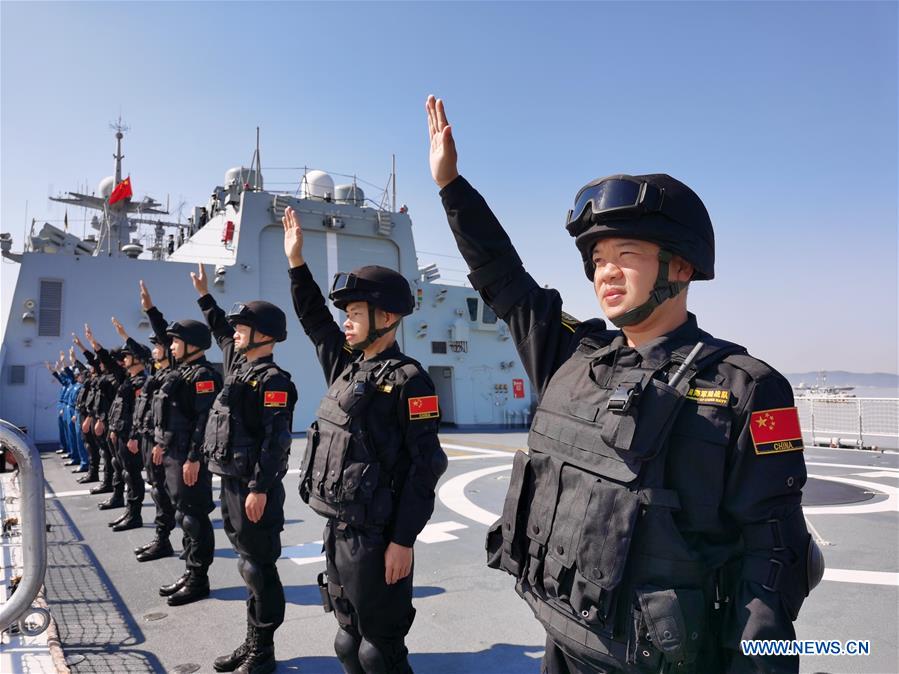By Hannan Hussain
At the opening ceremony of the international symposium that marked the 40th anniversary of the signature of the United Nations Convention on the Law of the Sea (UNCLOS), Chinese State Councilor and Foreign Minister Wang Yi expressed opposition to the show of force at sea, and detailed prospects for strengthening maritime governance by proceeding as one united community. "We should interpret and apply the convention completely, accurately and in good faith," said Wang.
Since its adoption in 1982, UNCLOS has given way to significant foundations for strengthening maritime governance. That makes it imperative for all parties to champion dialogue and consultation, particularly at a time when profound adjustments drive the international maritime order. For instance, it is the UNCLOS that protects the freedom of navigation and overflight of other states in select zones, and offers meaningful dispute settlement procedures that are suited to friendly consultations with concerned parties.
What measures can states take to uphold the convention's spirit on maritime governance? Those could include revisions in what Wang described as "outdated maritime rules" – a pursuit of China to be accomplished by partnering with "other developing countries." Similarly, it is important for countries to join hands and reject the "inappropriate expansion or abuse of power by judicial bodies." The message is clear: UNCLOS should not serve as a tool of suppression.
Successful multilateral diplomacy has played a defining role in making the convention a reality. History testifies to the fact that China and some 160 countries advanced a nine-year process of conclusion that put a premium on accommodating all-party positions. Keeping pace with future maritime practices will require continuous investment in the convention, especially in provisions that have wide-ranging utility for other laws. That includes matters that will continue "to be governed by the rules and principles of general international law," even if they are "not regulated by this convention" itself.
As a result, UNCLOS carries ample respect for other sea-related organizations and international procedures, making it possible for all states to benefit from equal-footed consultations and accommodation of their maritime interests. Recently, attempts by select states to challenge "freedom of navigation" with their own "freedom of willfulness" are steps in the opposite direction. Thus, parties should strive to cater to the varied positions of their counterparts so that truly equitable and reasonable maritime rules can be brought forward.
"The International Seabed Authority, the Commission on the Limits of the Continental Shelf, and the International Tribunal for the Law of the Sea... are a result of successful multilateral diplomacy," said Wang, drawing attention to the three hallmark regimes stemming from UNCLOS.
The very presence of these provisions strikes a telling contrast to unilateral proposals of the past, including those that have sought to deliberately conflate UNCLOS with a self-identified, alternative "rules-based order." More deeply, the convention can provide an even stronger buffer against such attempts aimed at establishing a maritime hegemony because, as Wang indicated, it encourages an "institutional framework" that "ensures the effective participation of developing countries" – leaving no voice unheard.

Special operation soldiers of the Chinese naval fleet for escort missions wave farewell on the deck at a port in Zhoushan, east China's Zhejiang Province, April 28, 2020. [Photo/Xinhua]
China's own experience of upholding the purposes and principles of UNCLOS carries meaningful lessons for the world. After all, China was one of the first countries that signed UNCLOS in December 1982, ratified it by 1996, and embraced UNCLOS negotiations as the first major international legislative process since China's restoration of its lawful seat at the UN. At this week's symposium, Beijing's ironclad commitment to the UN-centered international system, and its determination to prioritize legitimate interests of "medium and small countries," according to Wang, culminate in an opportunity to deepen the stakes of all developing countries.
Fortunately, a starting point for future UNCLOS momentum is to build capacities for stronger maritime legislation in states. On the one hand, that could further enable all-out implementation of UNCLOS in practice. On the other, it lays new groundwork for all states to have equal stakes in the preservation and utilization of core oceanic resources, in line with Wang's call to preserve "the ecological environment of the sea."
Hannan Hussain is a foreign affairs commentator and author. He is a Fulbright recipient at the University of Maryland, and a former assistant researcher at the Islamabad Policy Research Institute.

 中文
中文



